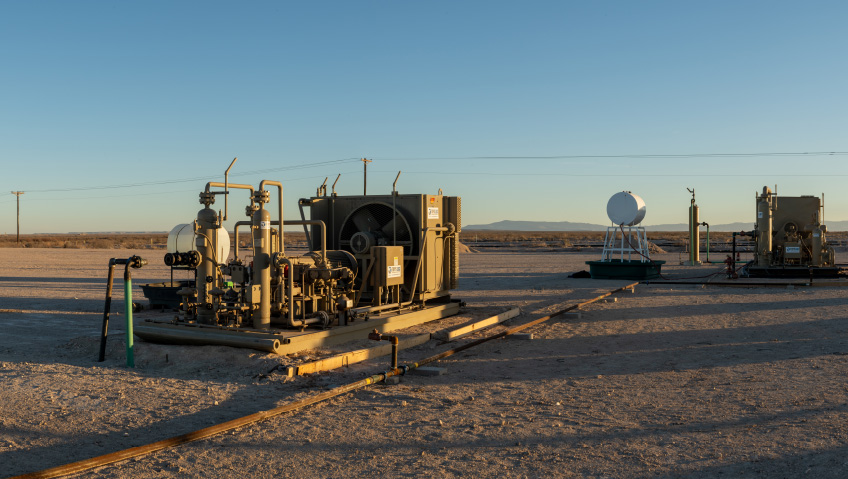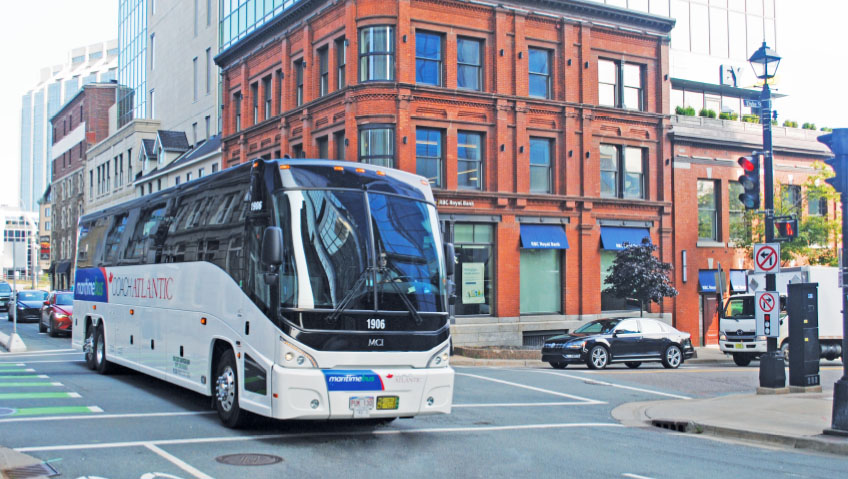Total Operations & Production Services (TOPS) LLC of Midland, Texas, is on the cutting edge of gas compression. This fast-growing company offers a rental fleet of automated, electric-driven gas compressors that generate minimal emissions and collect vast amounts of real-time data that can be remotely monitored.
“As of now, we have a total rental fleet of just over 275,000 horsepower, and out of that total, we are 98.5 percent electric-driven. We still have a miniscule percentage of legacy compression units that are driven by combustion engines, but we are getting closer and closer to the one hundred percent figure,” states Chief Executive Officer Brian Green, son of the company founder.
TOPS also offers comprehensive service, support, and maintenance for the roughly nine hundred advanced compressors in its fleet. Its customers consist of energy companies in the Permian Basin—a region in the south-western U.S. with abundant oil and gas deposits.
Gas compression—which increases the pressure of natural gas by reducing its volume—is not a new technology. TOPS, however, has established itself at the forefront of the compression field. Instead of driving the compressor with a traditional gas combustion engine, its compression skids have two electric-powered motors for nearly emissions-free operation.
Compressors from the company also feature custom-designed supervisory control and data acquisition (SCADA) technology. A SCADA system uses sensors, software, programmable logic controllers (PLCs), and other devices to enable process automation, data collection, and remote performance monitoring.
This type of innovation helps it stand out. “I think the biggest piece for us is automation—what we are able to do control-wise with an electric motor and a PLC. It’s far more advanced than what can be done with a gas engine. Everything is simpler—from restarts to monitoring operational ability,” says Green. “Secondly, there is the amount of data and analytics we’re able to collect from this system. Pretty much everything on that skid we can track in real time,” he shares.
“We have roughly 125 data points that we’re capturing in real time from each of our compressor skids. All that data is being funneled through our control room. It’s being looked at with statistical models to see if temperatures, vibration, pressures, or anything is out of norm or out of standard deviation.”
If a mishap is detected, or if a unit is down, TOPS can dispatch technicians to investigate and fix the problem or even restart the system remotely.
In addition to being highly efficient, the company’s compressors are better for the environment. Gas compressors typically run continuously, every day of the year, so traditional systems create a lot of carbon dioxide (CO2) emissions and other toxic fumes. Removing a gas combustion engine from the equation “is a significant benefit, not just for our industry but for our customers and everyone, from an ESG (environmental, social, governance) perspective,” says Green. TOPS compressors are also less noisy and costly and offer greater run-time than their gas-powered counterparts.
From its Midland headquarters, TOPS maintains a satellite office in Carlsbad, New Mexico and a facility in Yukon, Oklahoma. The Carlsbad branch primarily supports field personnel in the region, while the Yukon facility “gets our units ready and does major overhauls and such,” Green explains.
Equipment handled in Yukon is intended for use elsewhere. “Our operating area is all within the Permian Basin. Every one of our compression units is located in West Texas or southern New Mexico,” he says. Business is booming at present, so there is no need to expand outside of the Permian Basin.
TOPS has “a tremendous backlog for equipment that’s already contracted out to a blue chip customer base. So, right now, we are as busy as we can be servicing needs in the Permian. It would have to be a pretty good opportunity for us to move outside because we’re doing really well here,” he states.
The company gets most of its gas compressor units from Ariel, an Ohio-based firm that describes itself as ‘the largest manufacturer of separable reciprocating gas compressors worldwide.’ Green explains that there are “only a handful of manufacturers of natural gas compressors. The gold standard in the compression industry is Ariel. So, roughly eighty percent of our fleet is Ariel gas compressors.”
Ariel will build a compressor frame with cylinders and other equipment. Then, the product is sent to a network of Ariel packagers who work with TOPS “on the design of the overall compressor skid and compressor package, adding the cooler, motors, piping, pressure vessels, et cetera,” says Green.
Once the packagers’ work is done, the compressor goes to TOPS which installs instrumentation and other technology, then adds the finished product to its fleet.
Brian Green’s father L.D. Green founded the firm in 1996. When Brian came on board in 2006, the focus was on traditional, natural-gas-driven compressors which were “the industry standard,” in that period, he remembers. It has “definitely been an evolution.”
By 2008, shale gas had become a much sought-after commodity in the Permian Basin. “We were getting involved in the gas-lift compression market around that time. We began to see a lot of problems popping up with traditional compression units with natural gas engines. They weren’t really designed to run well in the Permian Basin. They weren’t really designed to handle the wet, saturated, heavy-gravity gas that we see up here,” recalls Green.
Around 2011, TOPS began delving into electric-driven compression as an alternative. “At the time we had all the naysayers who were saying, ‘Electric doesn’t make any sense.’ Fast forward, and we’ve completely flipped that metric,” says Green. “We’re doing business with the who’s who—blue chip customers in the Permian Basin—so I think we’ve proven that the concept for our area makes a lot of sense.”
L.D. Green worked as president and chief executive officer of TOPS until recently. In January of this year, he decided “to enjoy a much earned retirement, but he’s still involved with the company as chairman of the board,” his son states.
Brian Green, who has handled just about every facet of the business, moved from chief operating officer to chief executive officer. The company is now partnered with private equity group, Apollo Global Management, Inc. and is no longer a family business.
One consistent theme throughout the years has been a commitment to customer service. As business expanded, the company invested in new compressors and staff. “As we grow our fleet size, you have to have enough technicians to keep up. You have to have additional engineering support, project management support, all the back office support to make sure those guys in the field have the parts they need when they need them and where they need them,” explains Vice President of Sales and Marketing Misty Ingle.
TOPS currently has 165 employees. When considering a new employee, particularly for work in the field, the company wants people “who are technically inclined, who are not afraid to learn new things, who can embrace working with electronics and automation. It’s not something they’re intimidated by,” says Green.
A strong work ethic and the ability to take on challenges and “wear several different hats,” is also important, he continues.
“We love an employee who will challenge our preconceived notions. A lot of companies will squash that in their employees but we welcome somebody to challenge us and help us grow and do things differently,” adds Ingle.
For all its upward momentum, the company faces many challenges, including COVID. When the virus began spreading rapidly in March 2020, it introduced controls on people entering and leaving its facility, temperature checks, and social distancing to keep its workforce safe.
The pandemic “was an incredibly tough time for our industry,” but TOPS got through the worst of it intact and grew during the crisis, says Green. “I think it is a testament to what we’re doing and the benefits our customers see with our products.”
While the virus might have peaked, the fallout from shutdowns continues to wreak havoc on supply chains. Like many companies, TOPS has been dealing with long delays in part shipments, especially electronic components from Asia.
Still, the forecast for the future is bright. When interviewed, the company was preparing to ship a 2,000 horsepower compressor—its biggest unit yet. This fully electric system is quite a leap for the firm, which previously only handled compressors that went up to 800 horsepower.
“We see this as an opportunity for us to continue to grow, to put out some larger compressors. The same things that made us so successful with the smaller compressors, we think are going to be game changers for the larger units,” says Green.
Five years down the road, “We want to be seen as the leader of not just electric compression but the leader in compression in general. We’re constantly adapting and innovating. We want to see our horsepower totals continue to grow. We want to continue to grow our team and take advantages of opportunities as they come up.”






